Things to Know Before Buying a Modular Home
Published on February 28, 2024 | 5 Minute read

Melanie
Ortiz Reyes
Content Specialist
In the realm of modern housing solutions, modular homes have gained popularity for their efficiency, cost-effectiveness, and customizable designs. These homes, built in sections or modules in a controlled factory environment, offer an alternative to traditional site-built houses. Before embarking on the journey of purchasing a modular home, there are essential factors to consider.
Understand the Modular Home Concept
Before delving into the specifics, it's crucial to grasp the fundamental concept of modular homes. These homes are constructed off-site in modules or sections and then transported to the building site for assembly. Understanding this process sets the stage for a more informed decision-making process.
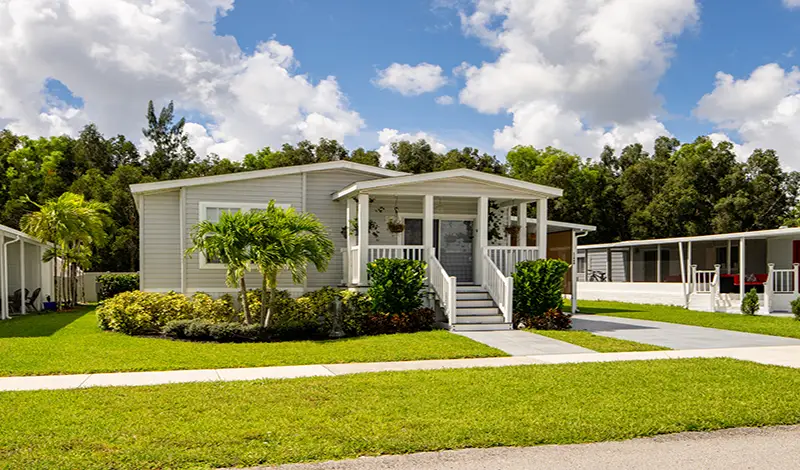
Research Local Building Codes and Zoning Regulations
Building codes and zoning regulations can vary significantly from one location to another. Before committing to a modular home, research the specific codes and regulations in your local area. Ensure that your chosen modular home design complies with these standards to avoid potential legal and construction challenges.
Choose the Right Modular Home Builder
Selecting a reputable and experienced modular home builder is needed for the success of your project. Research potential builders thoroughly, review their past projects, and check for customer testimonials. A reliable builder with a proven track record ensures the quality and efficiency of your modular home construction.
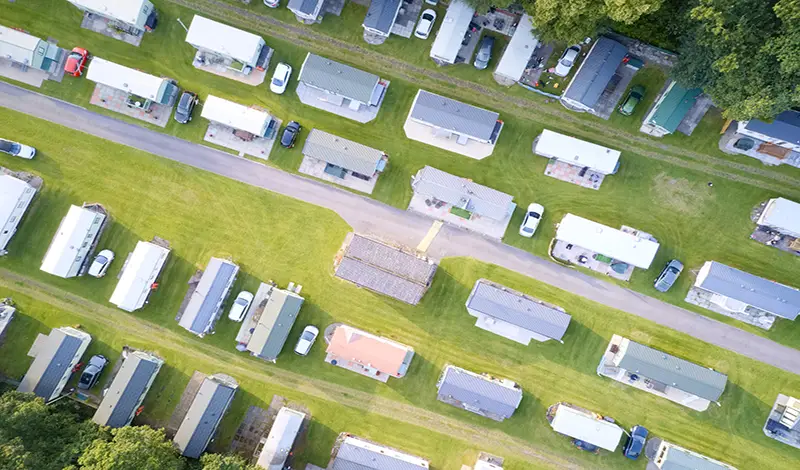
Energy Efficiency and Sustainability
Many modern modular homes are designed with energy efficiency and sustainability in mind. Inquire about the insulation materials, energy-efficient windows, and other features that contribute to a more environmentally friendly and cost-effective home. Choosing an energy-efficient modular home can lead to long-term savings on utility bills.
Inspection and Quality Assurance
Although modular homes are built in a controlled factory environment, it's important to ensure the highest quality standards. Request information about the builder's quality assurance processes and certifications. Additionally, consider hiring an independent inspector to assess the modules both during construction and upon delivery to your site.
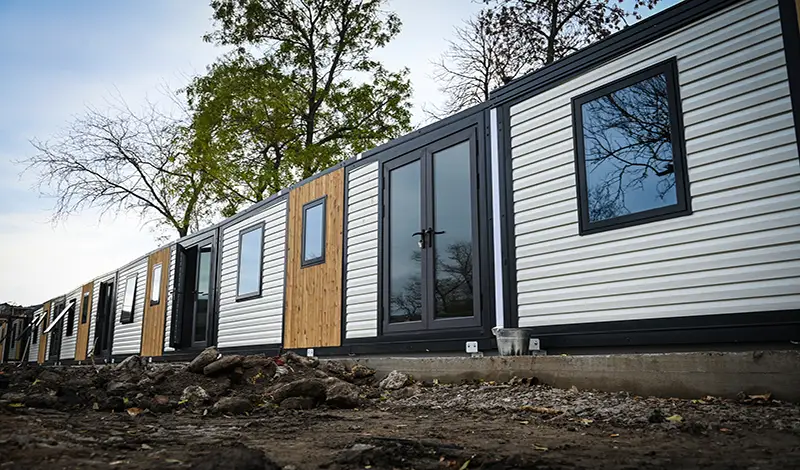
Transportation and Assembly Logistics
The transportation and assembly of modular homes require careful planning and coordination. Verify that the modular home builder has experience with the logistical aspects of transportation and on-site assembly. This includes securing the necessary permits, coordinating delivery schedules, and managing the assembly process efficiently.
Long-Term Durability, Maintenance, and Future Expansion
Consider the long-term durability and maintenance requirements of your modular home. Inquire about the materials used in construction, warranties provided by the builder, and the expected lifespan of key components. Understanding these aspects will help you make an informed decision about the long-term value of your investment. Additionally, consider your future needs and whether the modular home design allows for expansion. While modular homes are known for their flexibility, it's crucial to discuss potential future modifications or additions with your builder during the planning phase.
Community Restrictions and Local Resale Market Considerations
In some areas, communities may have restrictions or covenants that dictate the type of homes allowed. Check with local homeowner associations or community boards to ensure that modular homes are permitted in your desired location. Being aware of any restrictions upfront can prevent future complications. Before finalizing your decision, consider the local resale market for modular homes. While these homes often appreciate in value, understanding the local demand and resale trends ensures that your investment aligns with the broader real estate landscape.
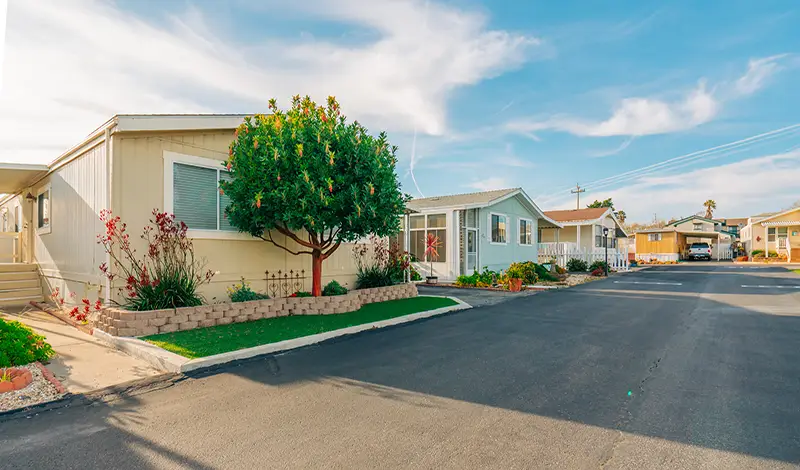
Embrace the Customization Potential
One of the significant advantages of modular homes is the high level of customization they offer. From floor plans to finishes, homeowners have the opportunity to tailor the design to their specific preferences and lifestyle. Unlike traditional homes, modular construction allows for a streamlined customization process, enabling you to create a living space that truly reflects your vision.
Budgeting for Site Preparation
While the construction of modular homes takes place off-site, site preparation is a critical consideration. Factor in costs for site clearing, excavation, foundation installation, and utility connections. Collaborate closely with your modular home builder to understand the specific requirements for on-site preparation and ensure that your budget accurately accounts for these essential aspects.
Financing with a Strategic Approach
Securing financing for a modular home involves considerations similar to those for traditional homes. Explore various financing options, including mortgages and construction loans. It's essential to research financial institutions and lenders with experience in modular home financing, as they may have specific requirements or considerations. Being well-informed about your financing choices sets the groundwork for a more seamless purchasing process.
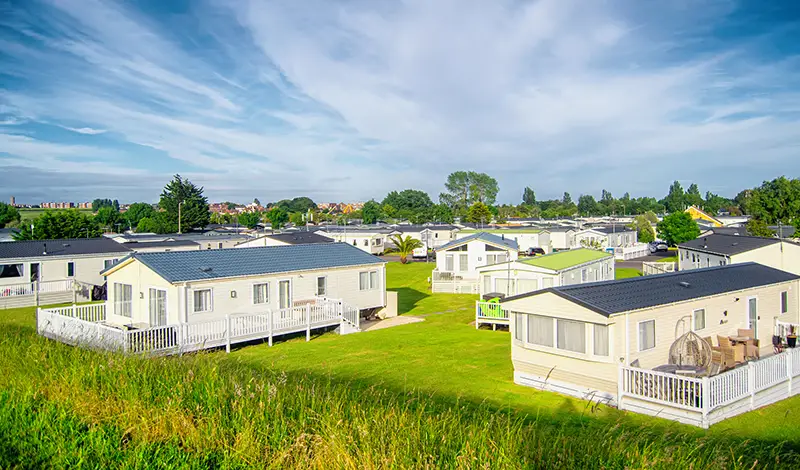
Energy Efficiency and Sustainability
As the demand for eco-friendly homes continues to rise, many modern modular homes are designed with energy efficiency and sustainability in mind. Inquire about the insulation materials, energy-efficient windows, and other features that contribute to a more environmentally friendly and cost-effective home. Choosing an energy-efficient modular home not only aligns with sustainable practices but can also lead to substantial long-term savings on utility bills.
Inspection and Quality Assurance
While modular homes are built in a controlled factory environment, it's essential to prioritize inspection and quality assurance. Request detailed information from your modular home builder regarding their quality control processes and any relevant certifications. Additionally, consider hiring an independent inspector to assess the modules during construction and upon delivery to your site. Thorough inspections contribute to the overall integrity and durability of your modular home.
Buying a modular home can be a rewarding and efficient way to achieve your dream living space. By considering these key factors, from customization options and budgeting to transportation logistics and long-term durability, you'll be well-equipped to navigate the process with confidence. Remember to work closely with experienced professionals, including modular home builders and inspectors, to ensure a smooth and successful journey into the world of modular home ownership.